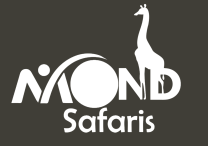Tanzania travel guidelines
All You Need to Know Before Visiting Tanzania
Read Our Tanzania Travel Guidelines
Mond safaris Tanzania Travel Guidelines: Everything You Need to Know Before Visiting Tanzania
Travel Advisory Guidelines for Tanzania
Excited about your trip to Tanzania? This beautiful country is known for its amazing wildlife, stunning landscapes, and vibrant culture. To help you get ready for your adventure, here’s everything you need to know before you go, ensuring a smooth and enjoyable visit.
Visa Requirements for Tanzania
First thing: Do you need a visa to enter Tanzania? The answer is yes for most travelers, but the process is simple.
Visa: You will need a visa to enter Tanzania. You can get one on arrival at major airports like Kilimanjaro International Airport or Julius Nyerere International Airport. Alternatively, you can apply online at the official Tanzania Immigration website ( Tanzania Visa link ).
Passport: Make sure your passport is valid for at least six months after your arrival in Tanzania and has at least one blank page.
Validity: The tourist visa is usually valid for 90 days. Check that your passport meets these requirements before you travel.
If the applicant is not sure about the type of visa he/she requires, he/she is advised to seek guidance through the e-mail: info@immigration.go.tz
Insurance Requirement for Zanzibar Starting October 1, 2024
Those heading to Zanzibar, you are required to have a travel insurance, Starting October 1, 2024, if you are visiting Zanzibar (except for residents), you must have special travel insurance from the Zanzibar Insurance Corporation (ZIC) for your stay (up to 92 days).
You can only buy this insurance from ZIC. Other international insurance policies will not be accepted. You can purchase the insurance starting September 1. For more details, visit the Zanzibar website at https://visitzanzibar.go.tz/
If you do not have the required insurance, you might not be allowed to enter Zanzibar.
For any questions not answered on the website, email ZIC at inbound@zic.co.tz.
Health & Vaccination Requirements
Your health is important, and Tanzania has some health requirements to keep everyone safe.
Yellow Fever: You must show proof of a yellow fever vaccination when you enter Tanzania. It’s a good idea to carry your vaccination certificate with you.
Malaria: Tanzania has malaria, so it’s recommended to take anti-malarial medication. Talk to your doctor before your trip to find out which medication is right for you.
Currency & Money Matters in Tanzania
Here’s what you need to know about handling money in Tanzania:
Currency: The local currency is the Tanzanian shilling (TZS), but U.S. dollars are accepted in many tourist spots.
Currency Exchange: You can exchange money at airports, banks, and exchange bureaus. Some hotels and safari lodges also offer currency exchange, though the rates might not be the best.
ATMs & Credit Cards: ATMs are available in cities and accept international cards. Credit cards are not as commonly used in smaller places, so it’s good to have cash handy.
Tipping: Tipping is common in Tanzania. For good service, a tip of $10-$20 per day for safari guides is usual.
Best Time to Visit Tanzania
When is the best time to visit Tanzania? It depends on what you want to do:
Dry Season (June to October): This is the best time for safaris in places like Serengeti National Park and Ngorongoro Crater. Wildlife viewing is excellent as animals gather around water sources and the vegetation is less thick.
Wet Season (November to May): This season brings lush landscapes and fewer tourists. It’s a good time for bird watching and seeing the Serengeti migration with fewer crowds. Note that March to May can have heavy rains, but November and December have lighter rains.
Cultural Manners and Local Customs
Understanding local customs will make your visit more enjoyable:
Dress Code: Tanzania is relatively conservative. Dress modestly, especially in rural areas and on Zanzibar. Beachwear is fine on the beach, but cover up when in towns or cultural sites.
Greetings: Greetings are important. A handshake and simple Swahili words like "Jambo" (hello) and "Asante" (thank you) are appreciated.
Photography: Always ask before taking photos of people, particularly in markets or rural areas. Some places may charge a fee or not allow photography.
Safety Tips for Travelers visiting Tanzania
Tanzania is generally safe, but it’s smart to take precautions:
Petty Theft: Be aware of your surroundings and keep your belongings secure, especially in crowded areas or markets.
Wildlife Safety: Follow your guide’s instructions on safaris and never approach wildlife on your own.
Health Precautions: Drink bottled or purified water to avoid stomach issues, and wash fruits and vegetables thoroughly.
Packing Essentials
Here’s a quick packing list for your Tanzanian adventure:
Clothing: Pack light, breathable clothes for daytime and warmer layers for cooler evenings, especially if visiting higher-altitude areas like Ngorongoro. Bring a hat, sunglasses, and sturdy walking shoes.
Safari Gear: Wear neutral-colored clothing for safaris to blend in with the environment. Bright colors can attract wildlife.
Connectivity & Internet Access
Staying connected is usually easy: Wi-Fi: Most lodges, hotels, and cafes in tourist areas offer Wi-Fi, though speeds can vary.
Language in Tanzania
Swahili is the main language, but English is widely spoken in tourist areas. Learning a few basic Swahili phrases like “Mambo” (how’s it going) and “Pole pole” (slowly, slowly) can be helpful and friendly.
With these Travel Advisory Guidelines for Tanzania, you’re all set for a fantastic trip. Whether you’re going on safari, relaxing on Zanzibar’s beaches, or climbing Mount Kilimanjaro, Tanzania is sure to offer unforgettable experiences.
If you have more questions or need help planning, Mond Safaris is here to assist you every step of the way!
